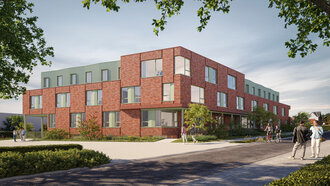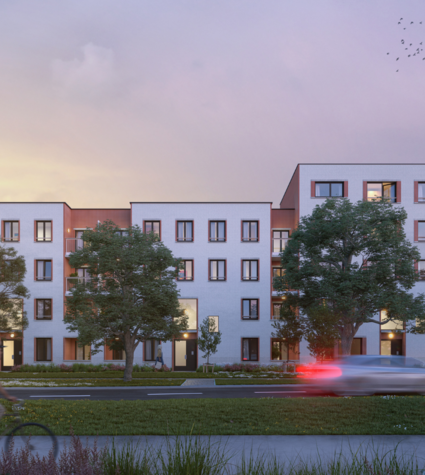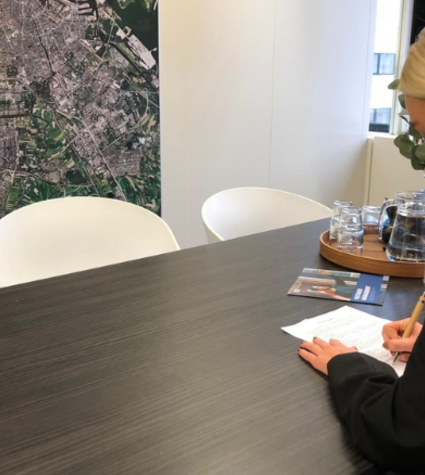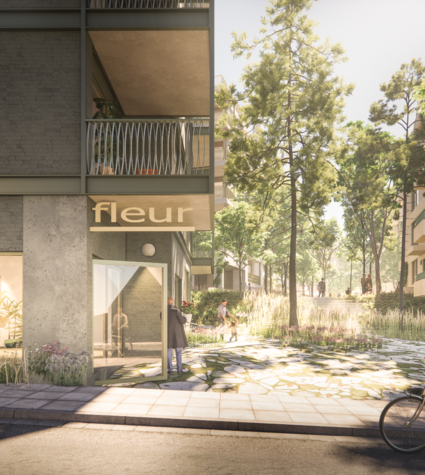
Soil survey Burenberg reveals bleak tundra of yore
In the inner area between the Brusselsestraat, the Goudsbloemstraat, the Kaboutermansstraat and the Muurkruidstraat, project developer ION is planning the new urban district Burenberg. The preliminary archaeological research already uncovered several interesting traces, including the recently discovered intact 'albeluvisol'. A very special find indeed.

From the ground down
The first four meters of the found profile covered the albeluvisol and ensured that the ancient soil was safeguarded. This layer contained the Stone Age, Metal Age and Roman period finds already found. Indeed, at a depth of four meters lies the walking surface of hunter-gatherers, and the fields of the Celts and the Romans.
Below this field with medieval and modern deposits begins the albeluvisol. Archaeologists see in its upper part white tongues and brown-black patches. A layer that probably dates from the extremely cold phase of the last ice age (29 000 to 16 000 years ago). Further down, there is a fine loam layer that a cold northerly wind deposited between 30 and 60 000 years ago. Where Leuven is now, there was a bleak tundra then. For the lower layers of albeluvisol, we have to go back to the Tertiary (66 to 2.5 million years ago). This lower layer was brought in during a tropical time by the sea.


Exhibited
That just an inner city hosts such soil is highly exceptional. It is a kind of stand-still of time. It provides a unique insight into the oldest history of Leuven. A sample of this soil profile has been lifted under the direction of KU Leuven and will be exhibited after preparation and analysis. "With this find, we can truly say that we are writing the first page of Leuven's history. Moreover, this excavation is the first of only a few new urban development projects that are stirring deep into Leuven's soil, such as the Podium Arts Site, Hertogen Island, New Leuven and the Winkelhaak. As a leading real estate heritage municipality, we are mapping this heritage and informing the population," concluded Alderman Devlies.










